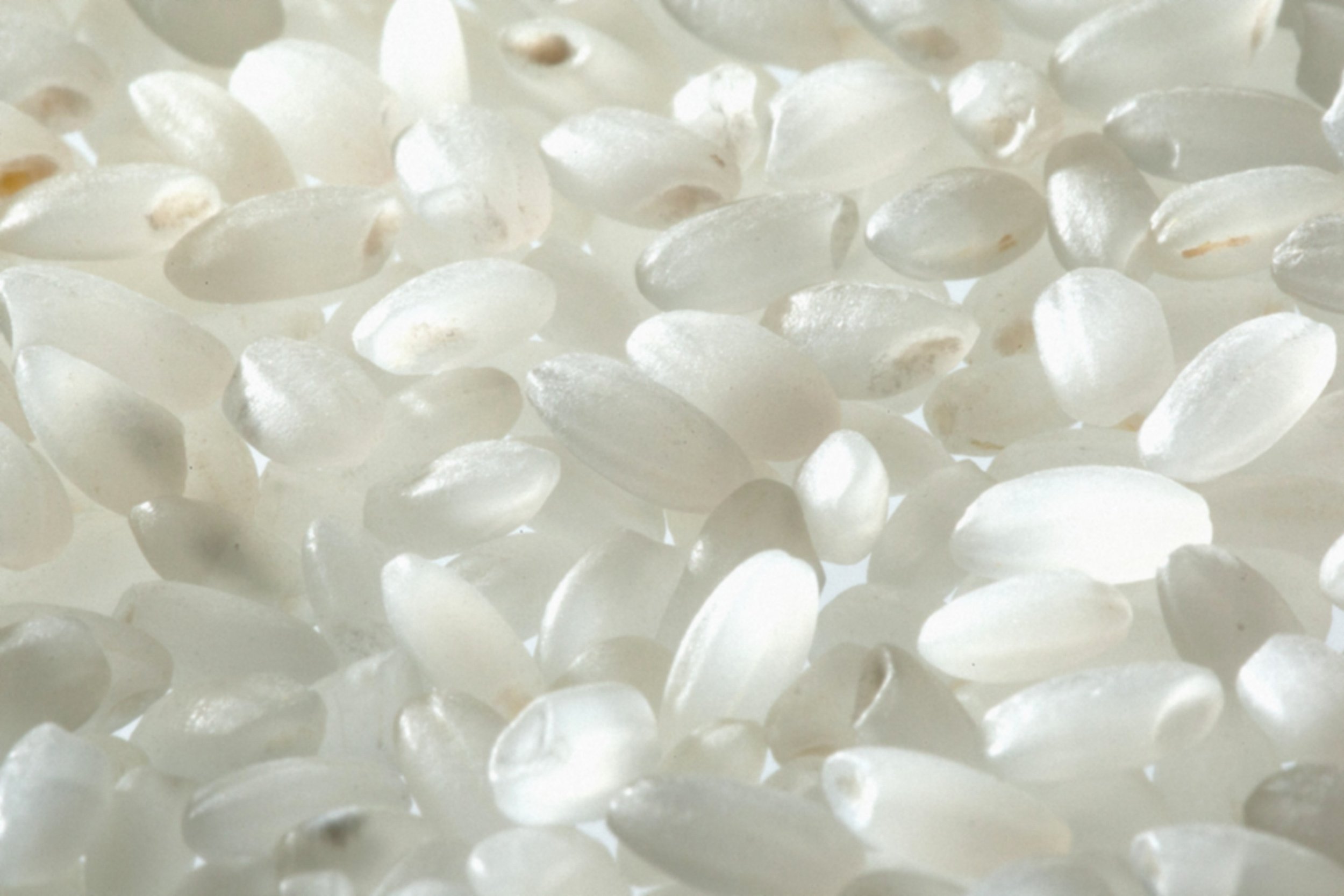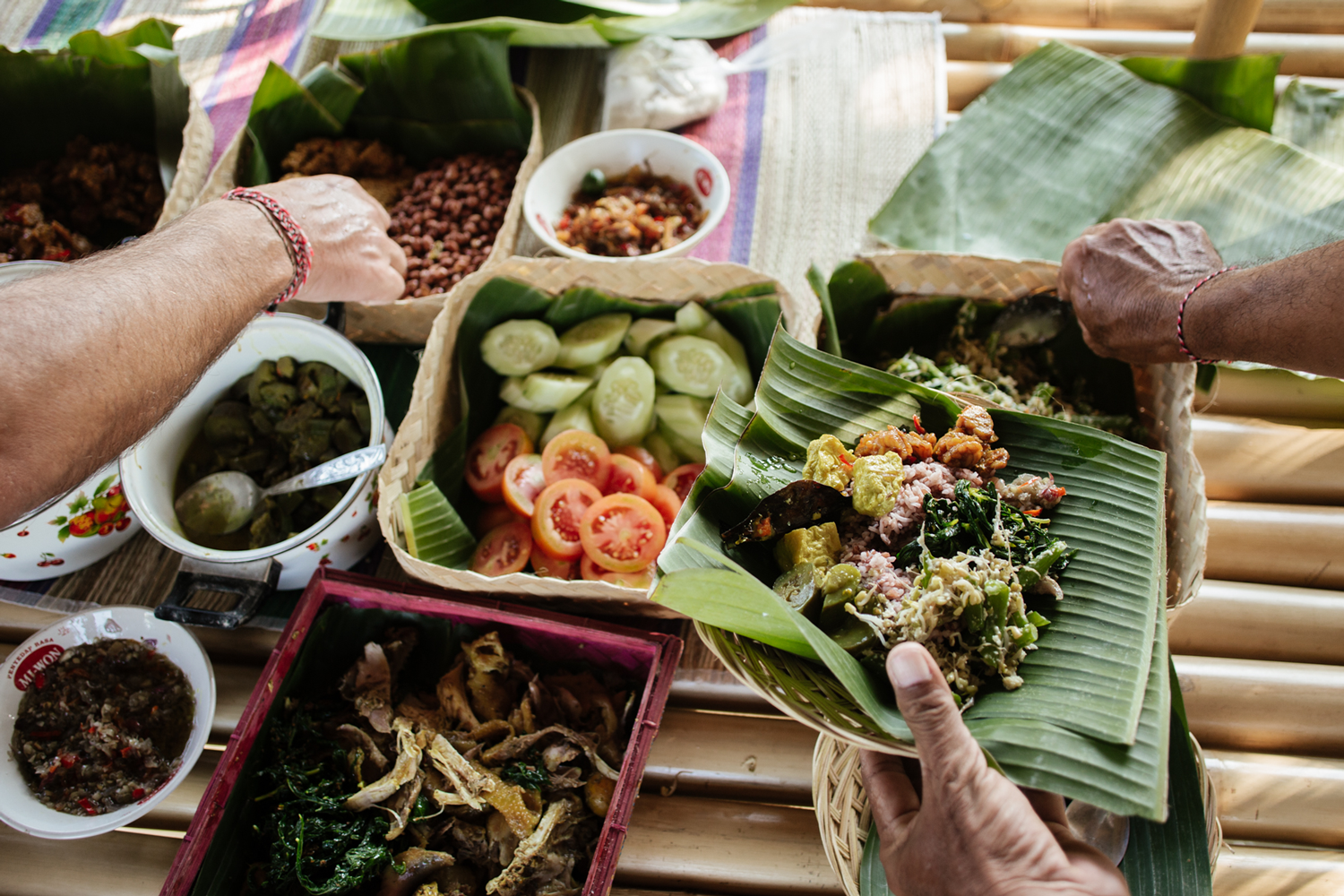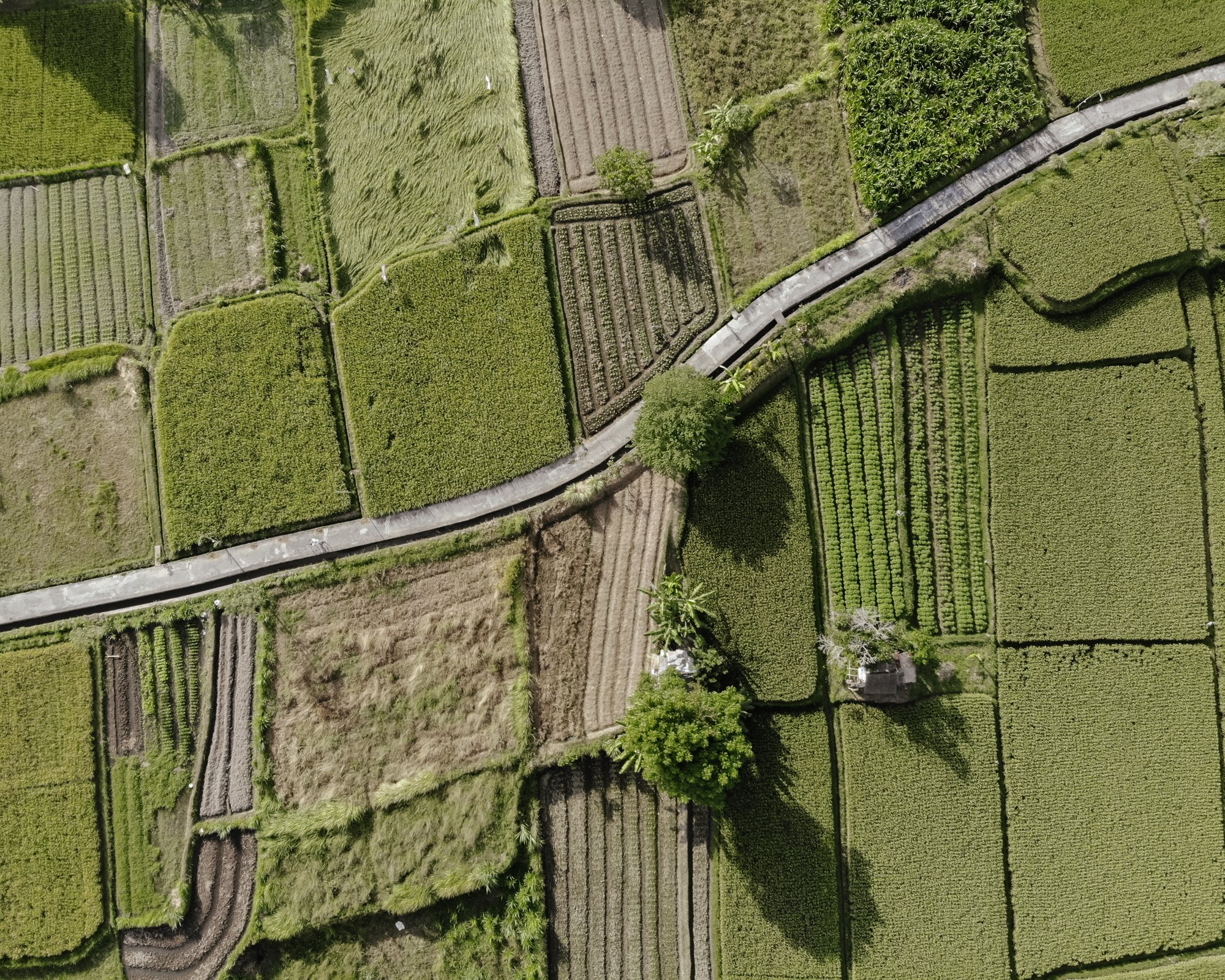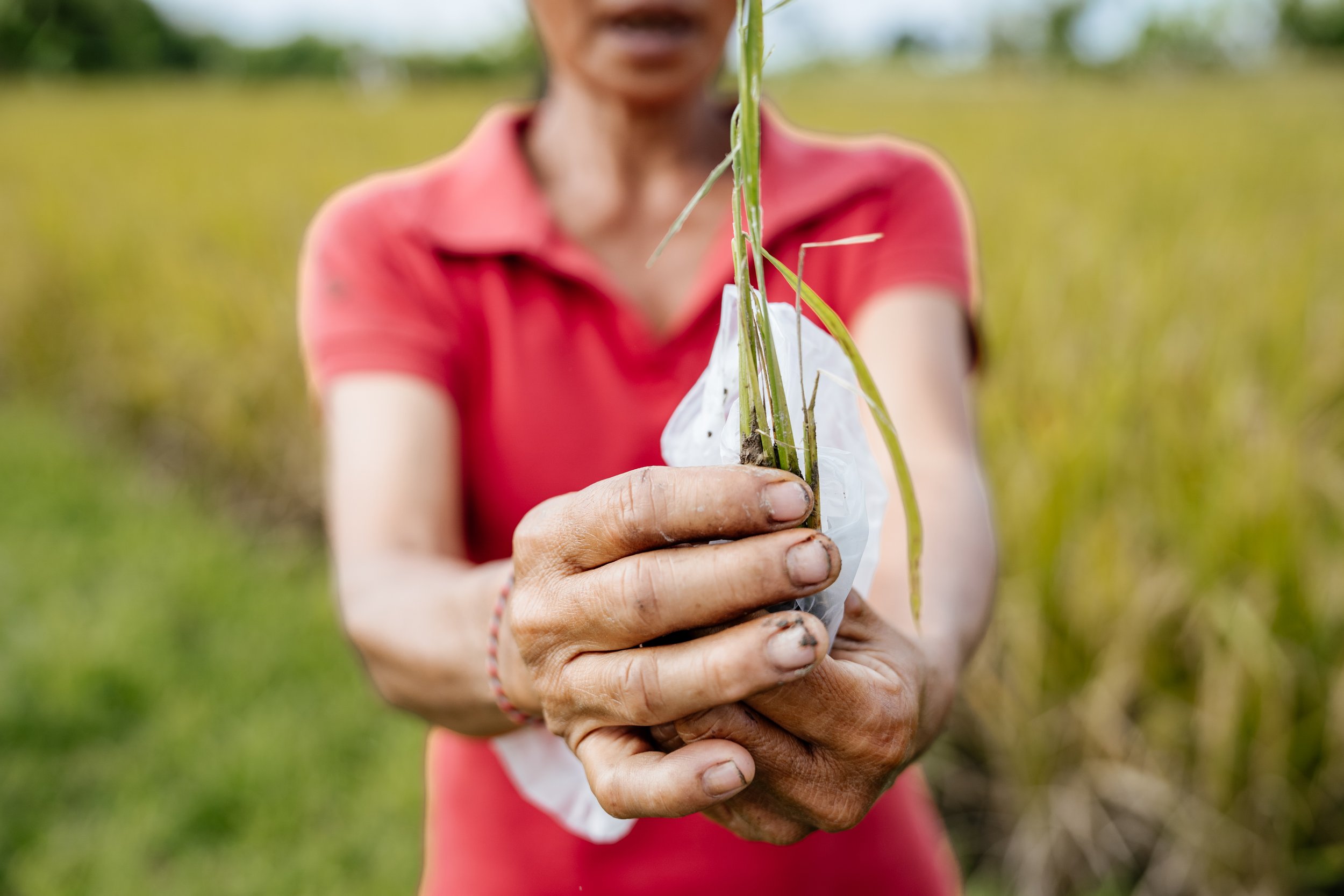INTRODUCING: REGENERATIVE RICE
The Reality of Rice
Rice is one of the most important staple foods in the world. Over 50 percent of the world's population eats rice every day.
Yet, like rice fields in other regions, Indonesian rice fields are like a buffet for pests and diseases that love to feast on precious rice crops. Meet the troublemakers: the Brown Planthopper (known locally as "Wereng coklat") that gives rice plants a nasty "hopper burn," the Rice Hispa (or "kumbang hijau") and the Gall Midge (the notorious "sayap beras") that munch on rice leaves and growth points, making rice plants look weak and miserable.

But hold on,
here comes the heroes - ducks!
These quacking champions waddle into the fields and go to town on insects, weeds, and those uninvited pests. Ducks are like the natural pest control squad, making chemical pesticides obsolete. Plus, they're not just pest busters but also soil superheroes. Their droppings are packed with nutrients like nitrogen, acting as organic fertilizer to boost our rice, all while saving us from the costly chemical stuff.
The rice and ducks combo isn't just about saving the day; it's a win-win for farmers and the environment: greener rice, no chemicals, and higher yields.

What is
Regenerative Rice?
In short, regenerative agriculture is a sustainable farming approach that focuses on enhancing ecosystem health, soil fertility, and biodiversity. It emphasizes practices such as minimal soil disturbance, cover cropping, crop rotation, and the integration of livestock to restore and improve the land's long-term productivity while mitigating environmental impacts. Regenerative rice is therefore grown utilizing a combination of nature-first soil and ecosystem regeneration methods known as the "Complex Rice System". This system was developed by Researcher Dr. Uma Khumairoh, alongside her colleagues, at the Faculty of Agriculture at Brawijaya University and Farming Systems Ecology Group at Wageningen University.

So why is ZFPA
supporting this project?
ZFPA teamed up with reNature to support regenerative rice production in Bali's Astungkara Way farming community, which started in January 2023. With ZFPA's Restore grants, collected through restaurant partnerships, they're giving wings to projects like this, scaling up land regeneration initiatives in Asia. They're even aiming to sequester 48.4 tons of carbon per hectare, a total of 4162.4 tons over seven years.
In a nutshell, regenerative agriculture isn't just a fancy term. It's all about keeping ecosystems happy, soil fertile, and biodiversity thriving. Picture minimal soil disturbance, cover crops, crop rotations, and ducks having a quacking good time while making our land more productive and the environment happier.

What makes this rice unique?
-
100% nature-inclusive
Conventional farming wants to keep nature out of the fields. These paddies, however, embrace nature with an increased biodiversity as a result.
-
Zero pesticides
In today's monocultural settings, rice is often produced using chemicals. This rice, however, did not receive any inputs like chemical fertilizers or pesticides.
-
1.2 times more harvest
Pilot farmers at Subak Uma Lambing confirmed that the regenerative practices yielded more than usual. 1.2 times means 1.2 times more income for the farmer.
-
Extra income
The ducks on the farm provide extra income as they can be sold at the end of the season. Instead of investing more on costly pesticides, farmers now gain on returns from using ducks as pest control.

CULTIVATING A
FUTURE FOR RICE

ABOUT THE PARTNERS
Zero Foodprint Asia (ZFPA) is a nonprofit organization mobilizing the food world around agricultural climate solutions. We raise funds via restaurants and food businesses to grant farmers ready and willing to transition away from the current extractive food system towards more regenerative farming practices; helping to protect soil, produce more nutritious food, and help solve climate change by sequestering carbon from the atmosphere.
Astungkara Way is a cooperative of 220 farmers, mostly Balinese, managing about 100 hectares of farmland. Their goal is to enhance economic and environmental resilience, increase carbon sequestration, and build biomass. In addition to sustainable rice cultivation, farmers will be taught to grow tropical fruits and medicinal plants in harmony with nature.
reNature supports the transition to regenerative agriculture in the entire agricultural supply chain, from smallholder farmers to large corporations. The team of market experts, project managers, agronomists, and regen ag experts designs and implements model farms and trains farmers primarily in the global south. reNature’s mission is to regenerate 100 million hectares of land worldwide while supporting 10 million farmers in their transition by 2035.
Special thanks to:
Zero Foodprint Asia:
Capsule48
Hyatt Centric Victoria Harbour
Roganic HK
Astungkara Way:
Ketut Widya Astuti
Martana Diputra
Tanguy Yu
reNature:
Eka Novia Endriany
Emily Franklin
Geert van der Meer
Marco de Boer
Uma Khumairoh
Yayang Vionita






